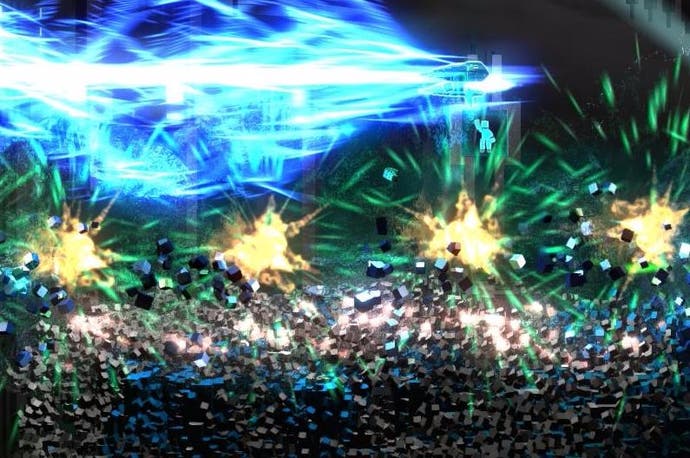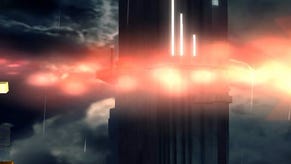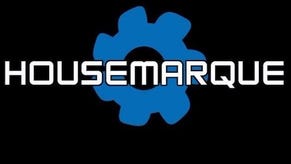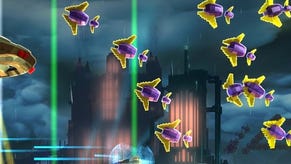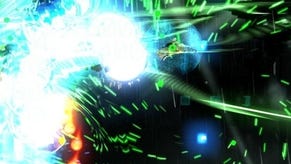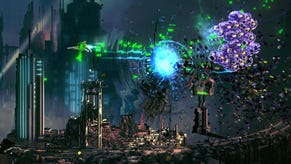How Housemarque engineered Resogun for 4K
The story behind the beautiful ultra HD PS4 Pro update.
If you own a PlayStation 4 Pro console and you've not added Resogun to your collection, you're missing out on one of the best showcase titles available for the system. Developer Housemarque has delivered a brilliant 4K presentation and vibrant HDR, while retaining a locked 60fps during gameplay. It's the same Resogun gameplay we've loved since launch, but beautifully retooled for the new generation of ultra HD displays. Essentially, it delivers the full promise of the Pro hardware where so many titles have come up just a little short.
It also scores big points in delivering what pixel-counts and extreme screenshot zooms seem to confirm as a native 4K presentation. Only it isn't. Housemarque uses a blend of techniques to deliver an ultra HD framebuffer that looks as good as the real thing - and the precision of it certainly had us convinced that it was the real thing.
"If by native 4K you mean 3840x2160 frame buffer - yes, that is the case. We used PS4 Pro's checkerboard rendering," explains Housemarque's engine architect, Seppo Halonen. "It was the second approach we tried and everything seemed to run fine with it so there was no need to try anything more after that. On top of this, there is our ultimate post-processing pass that is done at full 4K that processes enemy outlines and chroma split and a little bit extra on top of that, giving the game that final look."
One of the reasons we approached Housemarque about the PS4 Pro patch for Resogun is simply because the results we were seeing here were so good that we had to find out just how they managed to do it. Based on the incorrect assumption that it Resogun was resolving a native presentation, Housemarque had somehow delivered the same performance with 4x the pixel count on a machine that is 'only' around twice as fast as the standard PS4. The maths didn't add up, and even with the revelation that the developer is using a checkerboard solution, the identical performance we see is still quite an achievement. Even the end-of-level apocalypse effects - which do see the frame-rate drop beneath 60fps - reveal identical performance on both PS4 consoles.
"Checkerboard rendering drops [a 4K presentation] to 2x the pixels, but that is of course not the whole truth - 4K and HDR both require additional post-processing which must be done in full 4K so all in all we had around 1.5ms less to work with," Seppo Halonen explains.
"First things first, our voxel rendering was speed-limited by PS4's triangle throughput, and Pro has twice the oomph for that. Also, we are now using async compute extensively for particle effects and lighting to keep the GPU busy at all times. Furthermore we converted almost all of our textures to use BC7 texture compression to conserve memory bandwidth now that our toolchain has support for that, post-Alienation.
"And finally - let's face it, we have years more experience on PS4 now and both our own and Sony's tools have improved since the launch of PS4. Resogun had the best game tech we could make at the time. Now we can do much better."
/Even the HDR implementation - which base PS4 users also benefit from - required significant engineering, even though most game engines are built on high dynamic range pipelines, tone-mapped down to support standard SDR displays. Halonen explains that supporting HDR display technology required significantly more work than they anticipated.
"We even had to go as far as to reverse-engineer our own shader code from disassembly to make 100 per cent sure that we knew exactly what it did. As such we had to retain the inverse-gamma lighting and count on our transparent and particle effects to put the real capital H in HDR," he says. "Also HDR requires higher colour precision, which translates into more memory used in colour buffers, so we had some memory issues, but using BC7 format for textures solved that - another win-win. It even improved texture quality in some cases, so that makes it a win-win-win."
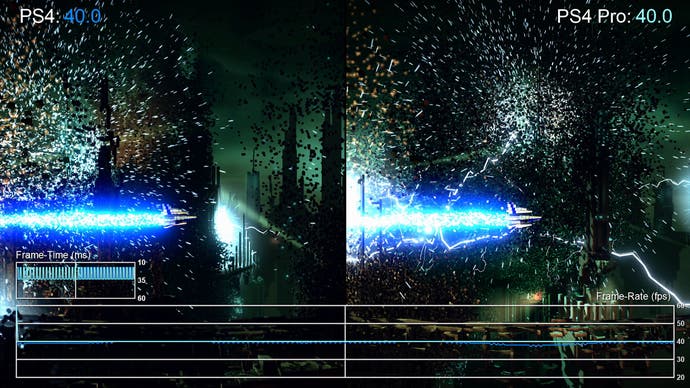
To the naked eye, Resogun on PS4 Pro is effectively the game we know and love, albeit rendered at 4K and with HDR fully supported, but it's been fascinating to discover just how much work went on behind the scenes to bring about the support. It's a major engineering overhaul that saw the entire game ported over to Housemarque's latest engine - reminiscent of how Super Stardust HD received similar treatment in order to support stereo 3D on PlayStation 3.
And while Sony has mooted Pro support as only requiring a small amount of additional developmental resources, Housemarque poured generous levels of manpower into getting the best possible results.
"We slowly started the development in September 2016, finishing in early February 2017, so it took about five months including various holidays the team had during the development. It took slightly longer than anticipated due to an engine update and the size of the job being bigger than expected," says Housemarque producer Jari Kantomaa.
"This project was mainly considered to be a tech project for the tech and game programmers, as we needed to update the old Resogun engine to our latest engine to get the best performance results.
"In total, around nine to 10 people were involved in the project, with the core team consisting of three programmers, a producer and a QA tester. The support team included additional programmers and QA testers, as well as a 3D artist and a VFX artist."
Housemarque wouldn't comment on how the investment in this work will pay off in future titles, but with the Eugene Jarvis collaboration Nex Machina using technology seemingly evolved from their work on Resogun, it seems safe to assume that this extraordinary level of commitment to supporting PS4 Pro will be reflected in its upcoming software. But in the meantime, after months of waiting, Resogun on PS4 Pro delivers everything we wanted from it and it's been fascinating to get some level of insight into how the developer achieved these remarkable results.
